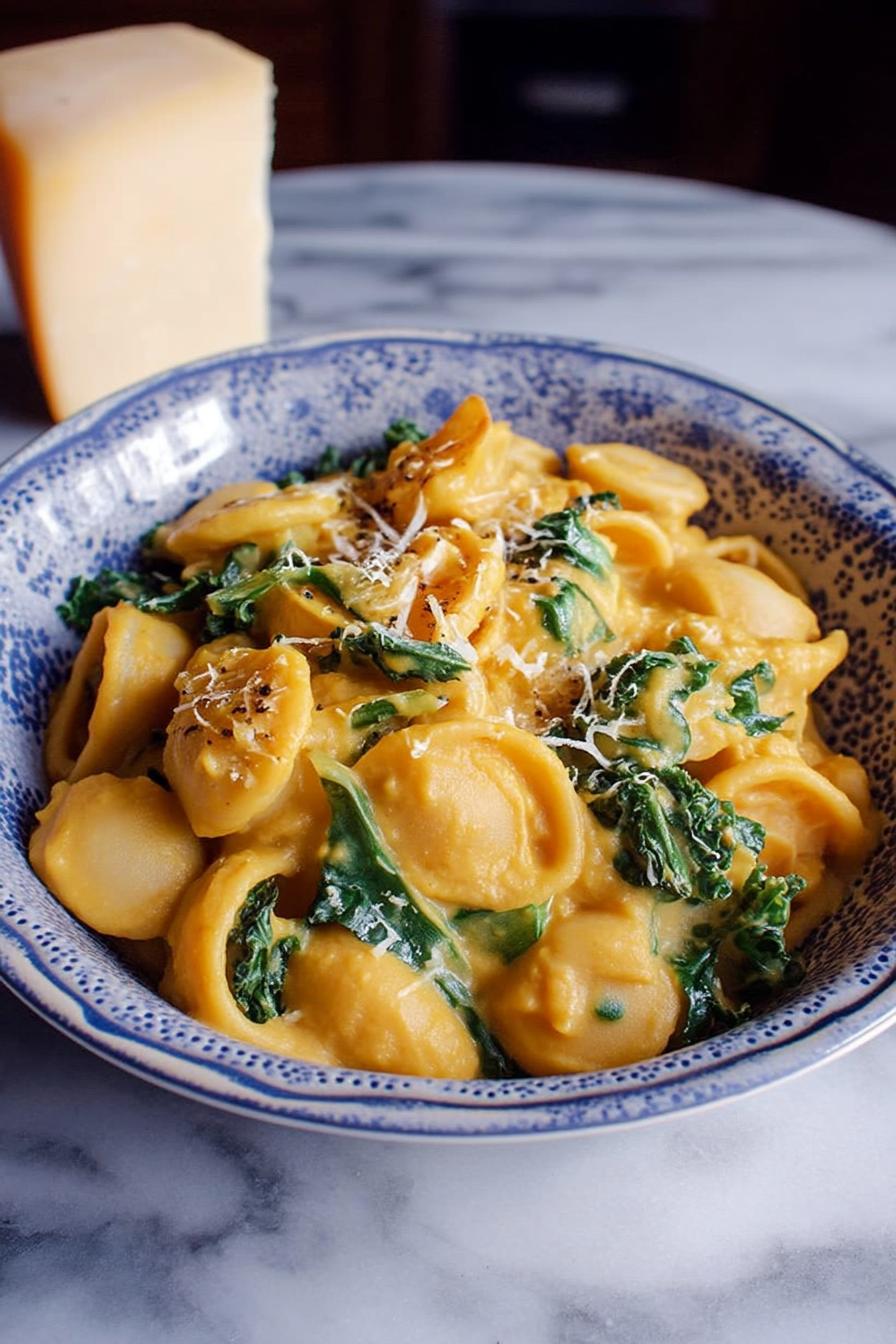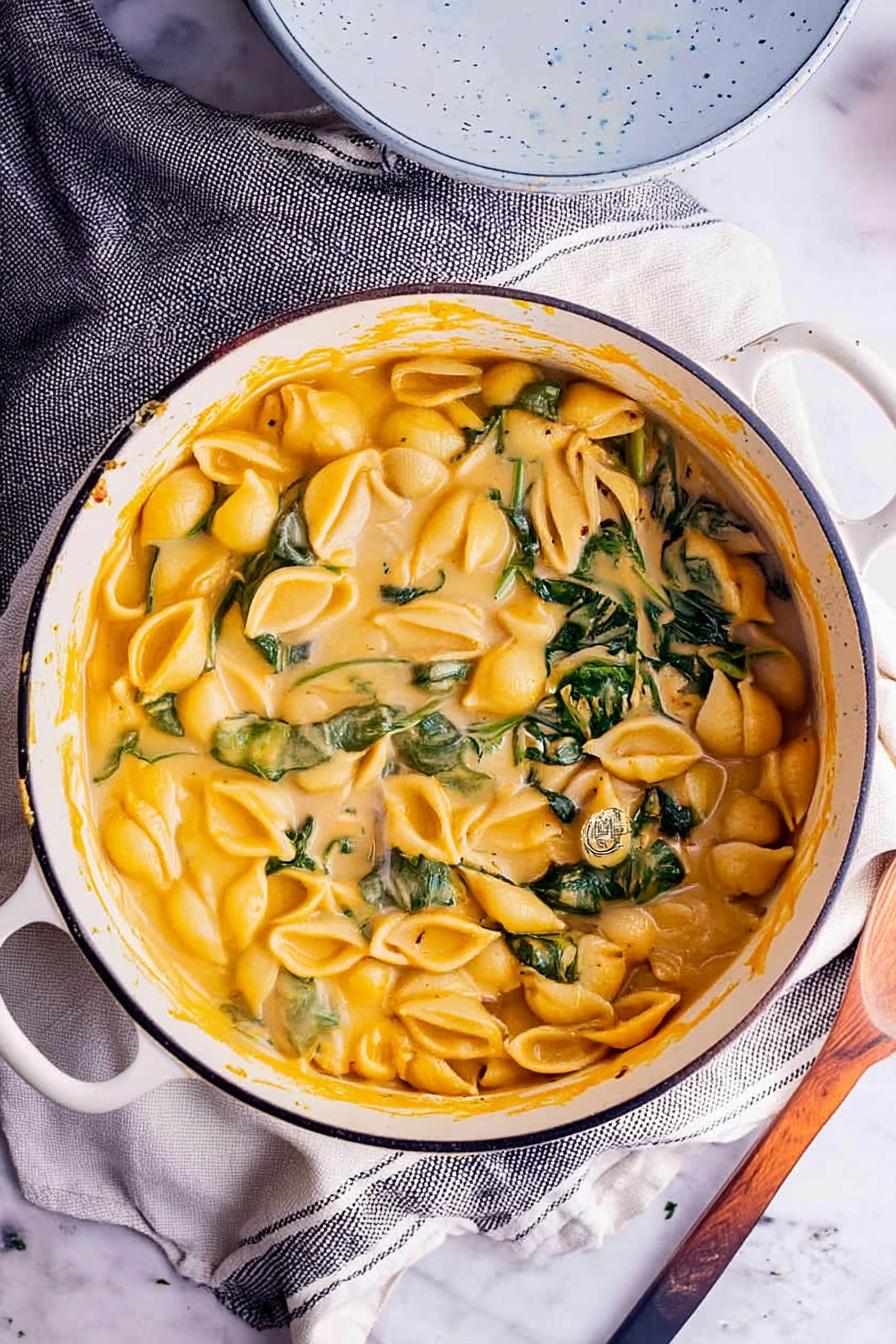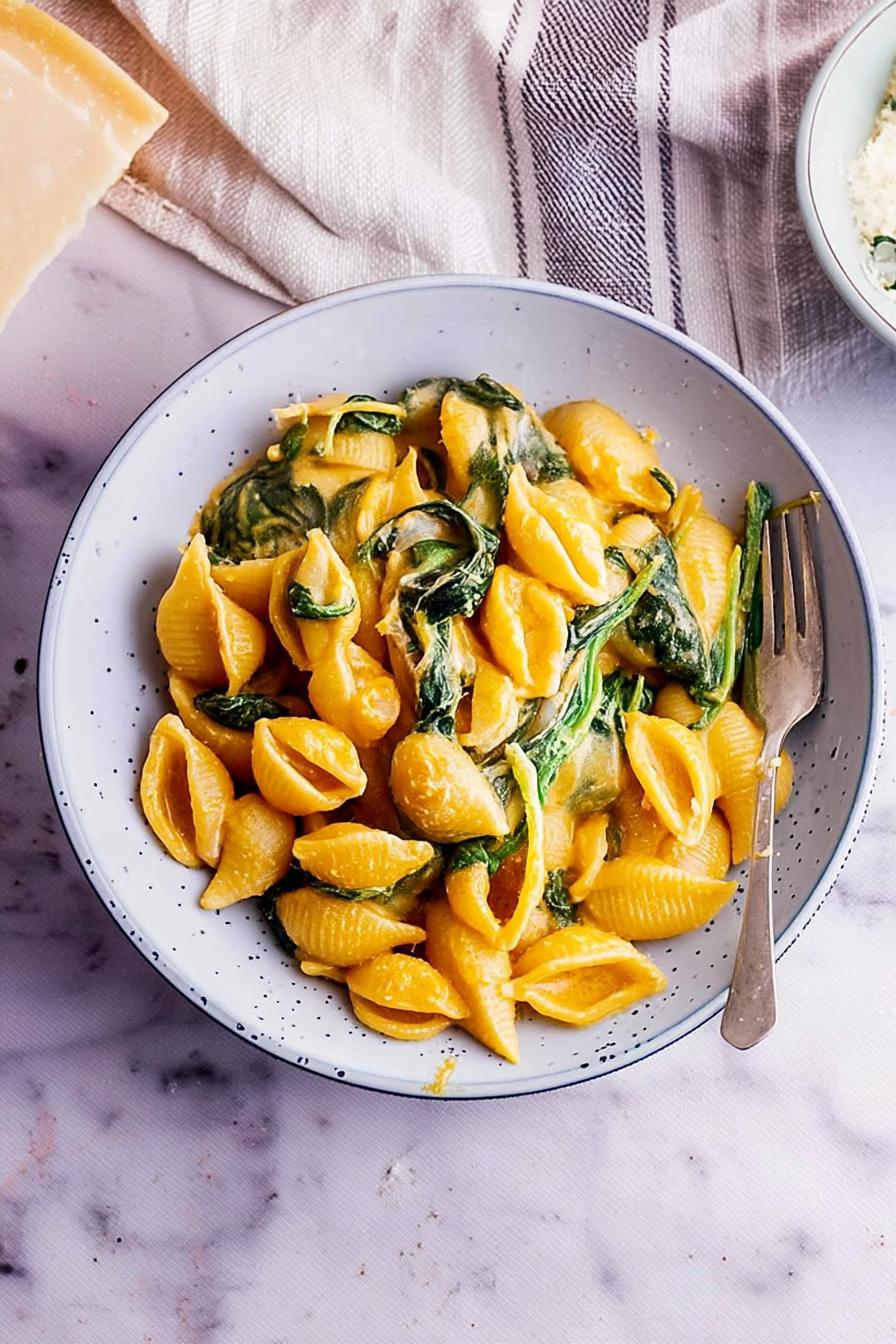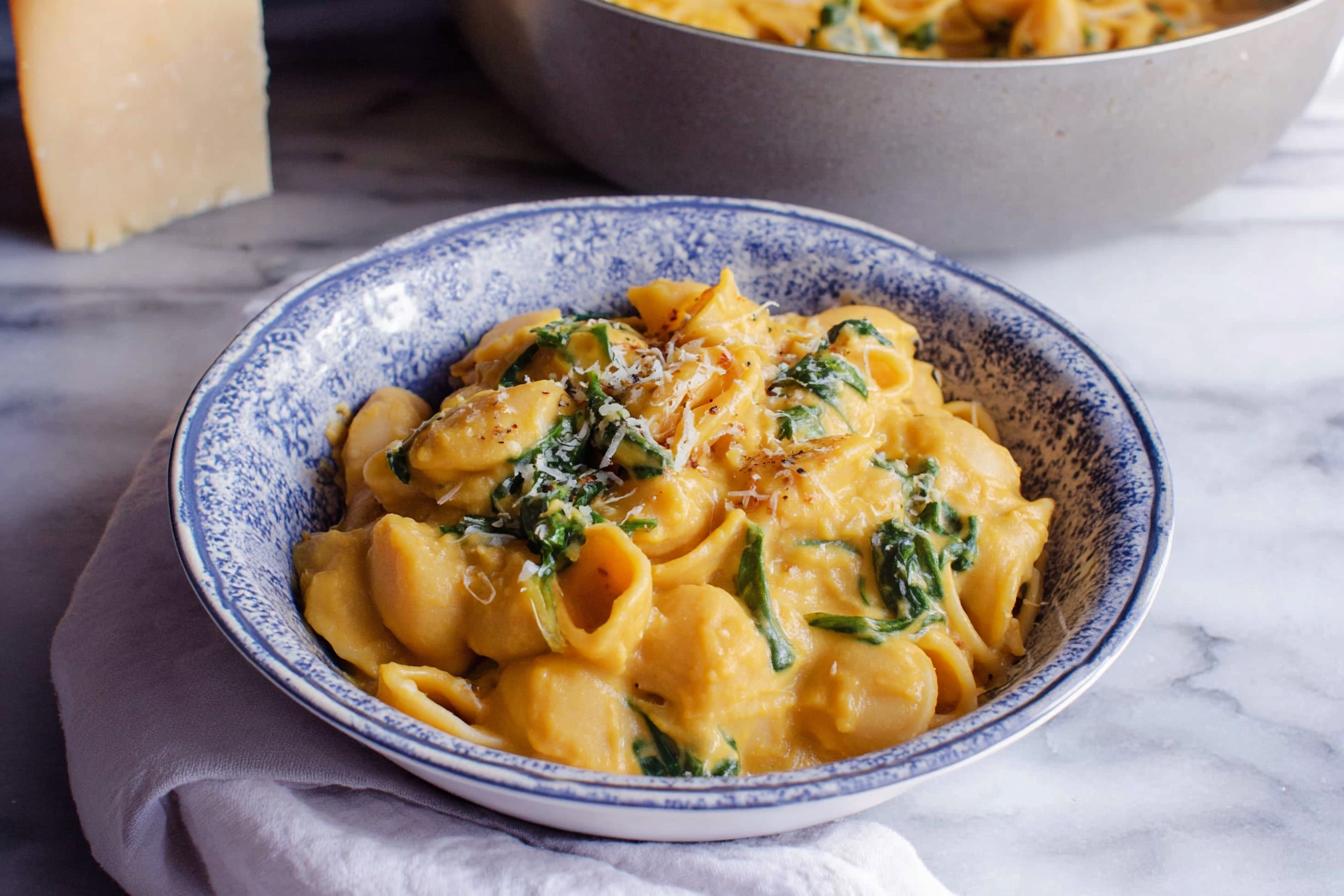Golden edges of squash peek from the oven as fragrant steam drifts through the kitchen. I’ve stirred bubbling, glossy cups of Butternut Squash Pasta Sauce across three trials, tweaking roast times and seasoning, and the result is silky smooth and warmly spiced. My hands-on experiments revealed secrets in peel thickness and roasting temperature that I can’t wait to share.
Why You’ll Love Butternut Squash Pasta Sauce
- Velvety texture coats every strand of pasta without feeling heavy
- Subtle nutmeg note enhances the squash’s natural sweetness
- Roasting brings out a nutty, caramelized aroma
- A dish rooted in autumn harvest traditions

A Little Background
My first run at this sauce was a messy peel-and-chop session on a rainy Saturday. By the third attempt, I’d learned that a Y-peeler yields thinner, more uniform butternut slices, speeding roast time to a perfect 30 minutes. This sauce draws on Italian cucina povera, turning simple squash into a rich, comforting sauce that sings of fall.
Key Ingredients for Butternut Squash Pasta Sauce
- Butternut squash (1 kg): Provides creamy base; sub with pumpkin if needed
- Olive oil (3 tbsp): Use extra-virgin for fruitier notes
- Onion (1 large): Finely chopped to melt into sauce
- Garlic (2 cloves): Crushed for a gentle pungency
- Vegetable stock (250 ml): Adds depth; adjust thickness by adding pasta water
How to Make Butternut Squash Pasta Sauce
- Preheat the oven to 200°C (180°C fan). Peel, seed, and cube the squash into 2 cm pieces. Toss with 1 tbsp olive oil, season with salt and pepper, and spread on a baking tray. Roast for 30 minutes until edges turn golden and tender.
- Meanwhile, heat remaining oil in a skillet over medium heat. Add chopped onion and cook for 5 minutes until translucent, then stir in garlic and sauté for 1 more minute until it releases a nutty aroma.
- Transfer the roasted squash, onions, and garlic into a blender. Pour in the vegetable stock and add ground nutmeg. Blend on high for 1–2 minutes until the mixture is silky smooth and glossy.
- Pour the puree back into the skillet. Bring to a gentle simmer and cook for 10 minutes, stirring occasionally. Season to taste. In the meantime, cook 350 g pasta in salted boiling water, drain, reserving 60 ml pasta water, and toss with the sauce, adding water to reach desired consistency.

Pro Tips & Troubleshooting
- On my cooking test, stirring every 5 minutes prevented the sauce from sticking and encouraged even color.
- If the sauce seems grainy, add more warm pasta water a splash at a time to smooth it out.
- Swirl in a teaspoon of fresh sage or thyme leaves in autumn for a woodland aroma.
- To halve the batch, reduce stock to 125 ml and roast 500 g squash for 20 minutes.
Storage & Make-Ahead Guide
Let the sauce cool to room temperature and refrigerate in a sealed container for up to 5 days. For longer storage, freeze portions in airtight bags for up to 3 months—test showed freezing in ½-cup scoops works best. Reheat gently on low, stirring until piping hot. Discard any sauce left at room temperature beyond 2 hours for safety.
Serving Suggestions
Drizzle extra-virgin olive oil and sprinkle grated Parmesan or toasted pine nuts over a steaming bowl of fusilli. Add crisp pancetta or roasted mushrooms on top for texture contrast, or swirl into baked penne for a golden, bubbling crust.

Frequently Asked Questions
- How long can I store Butternut Squash Pasta Sauce in the fridge? Up to 5 days in a sealed container; always cool completely before refrigerating and reheat only once.
- Can I use frozen butternut squash for this sauce? Yes. Roast directly from frozen, increasing bake time by 5–7 minutes until tender and lightly browned.
- What’s the best blender to achieve a silky sauce? A high-speed blender or an immersion blender ensures smooth texture; blend in pulses for control.
- How do I make the sauce vegan? Simply omit any dairy additions—use extra stock or a splash of coconut cream instead of double cream.
- Is it okay to prepare this sauce ahead for a dinner party? Absolutely. Make up to 3 days in advance; gently reheat on low and stir in reserved pasta water before serving.
- What pasta shapes pair well with this sauce? Tubular shapes like penne or rigatoni catch the sauce best, while ribbons like tagliatelle offer elegant coating.
Final Thoughts
Every spoonful of Butternut Squash Pasta Sauce feels like a cozy evening by the hearth. It’s my go-to when I crave warmth and richness without heaviness. Give it a spin this weekend and let me know how your kitchen smells of autumn magic!
More Recipes You’ll Love
- Butternut Squash Soup Recipe – takes squash sweetness in a warming bowl
- Butternut Squash Pasta Carbonara – a creamy, smoky twist with pancetta
- Creamy Pumpkin Gnocchi with Italian Sausage – similar squash creaminess meets tender gnocchi
- Fettuccine Alfredo – rich, buttery sauce for classic pasta nights

Butternut Squash Pasta Sauce
Ingredients
Sauce
- 1 kg butternut squash peeled, seeded, cubed
- 3 tbsp olive oil divided
- 1 large onion chopped
- 2 cloves garlic crushed
- 250 ml vegetable stock
- Pinch nutmeg
- Salt and pepper to taste
Pasta
- 350 g pasta
- Reserved pasta water approx. 60 ml
Instructions
Sauce
- Preheat the oven to 200°C (180°C fan). Peel, seed, and cube the squash into 2 cm pieces. Toss with 1 tbsp olive oil, season with salt and pepper, and spread on a baking tray. Roast for 30 minutes until golden edges and tender.
- Meanwhile, heat remaining 2 tbsp olive oil in a skillet over medium heat. Add the chopped onion and cook for 5 minutes until translucent, then stir in the garlic and sauté for 1 minute until fragrant.
- Transfer the roasted squash, onions, and garlic into a blender. Pour in the vegetable stock and add nutmeg. Blend on high for 1–2 minutes until silky smooth and glossy.
- Pour the puree back into the skillet. Bring to a gentle simmer and cook for 10 minutes, stirring occasionally. Season to taste.
Pasta
- Cook 350 g pasta in salted boiling water according to package instructions. Drain, reserving about 60 ml of pasta water.
- Toss the pasta with the sauce, adding reserved pasta water as needed to reach the desired consistency.

